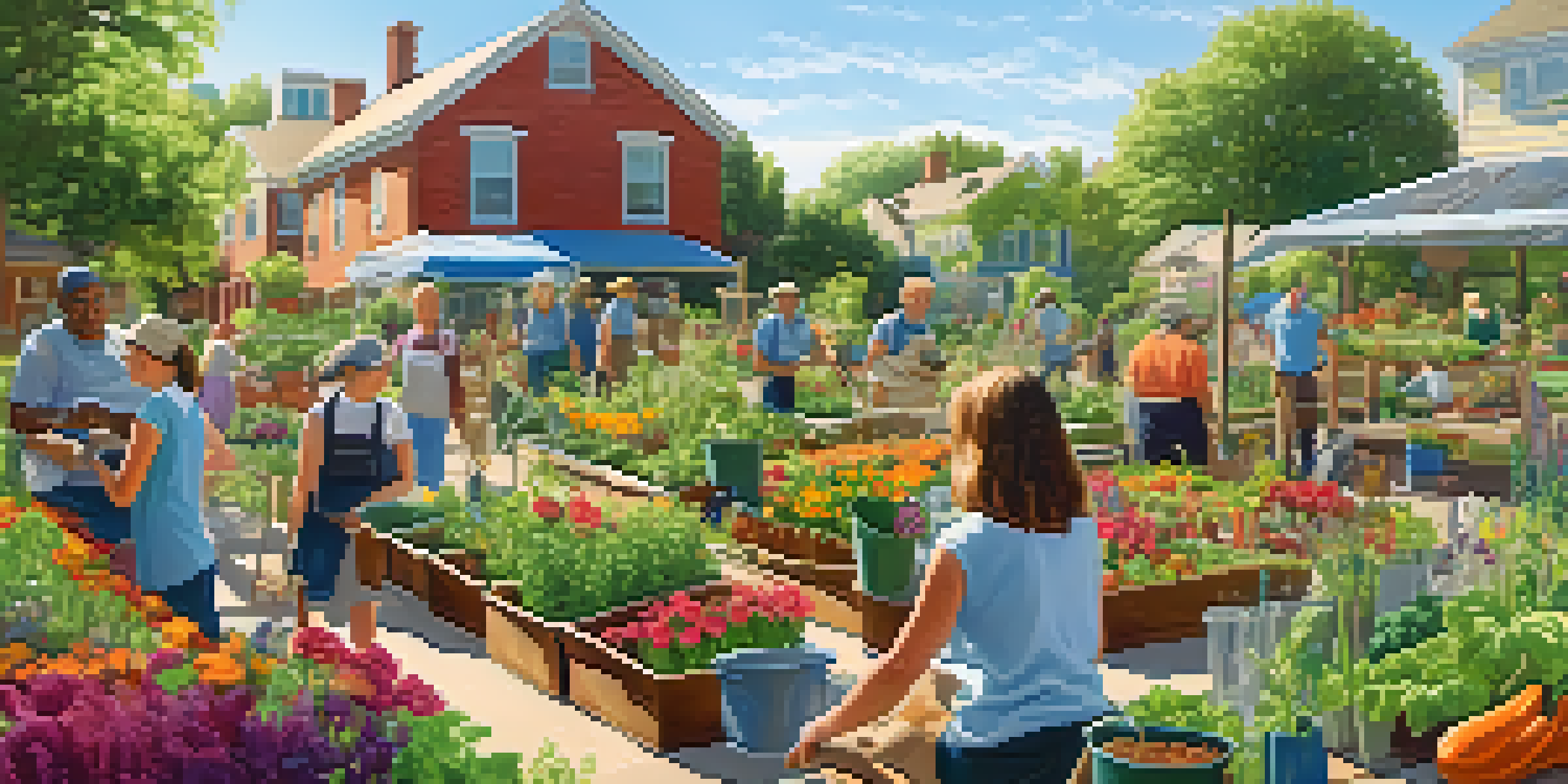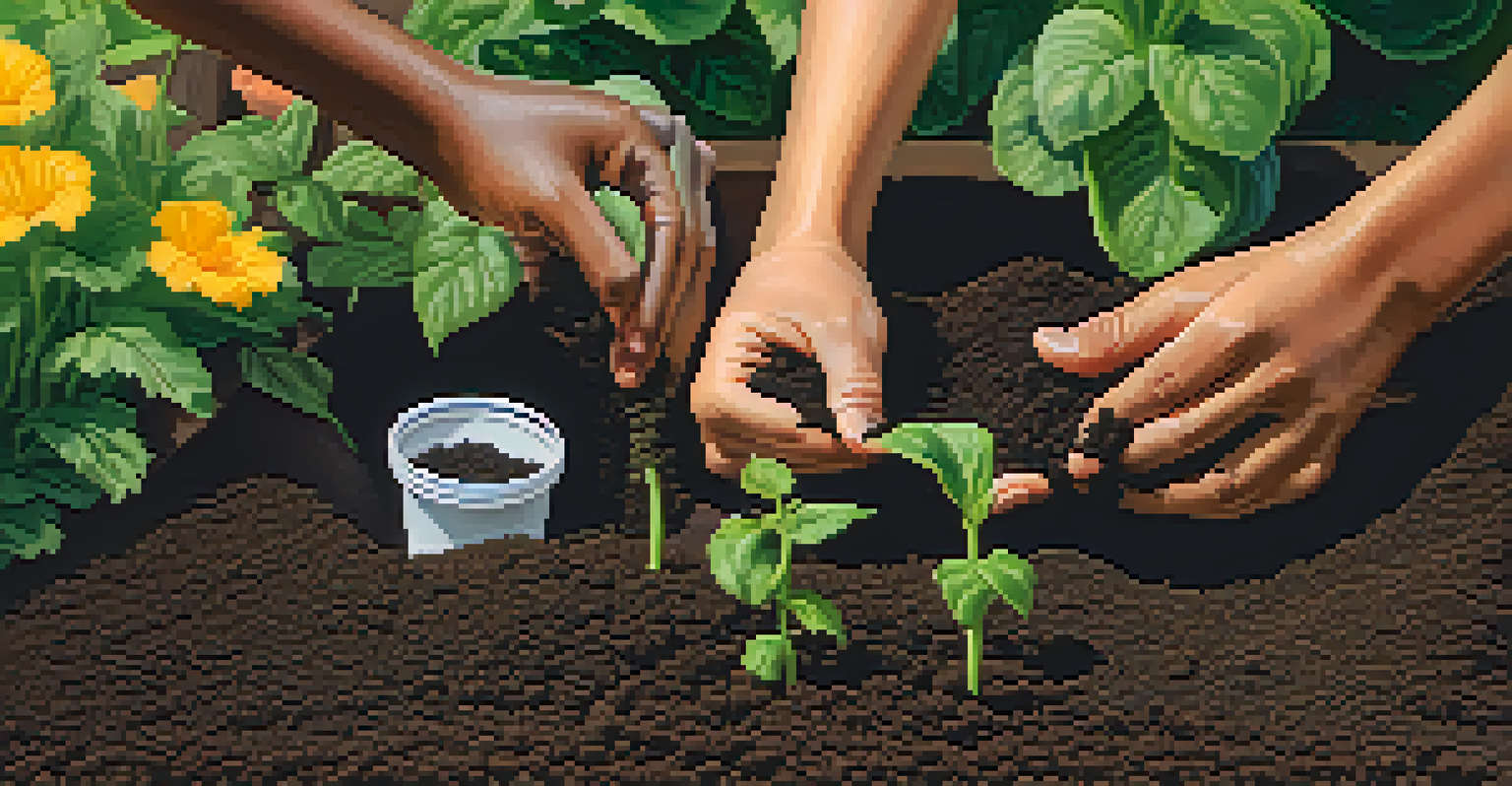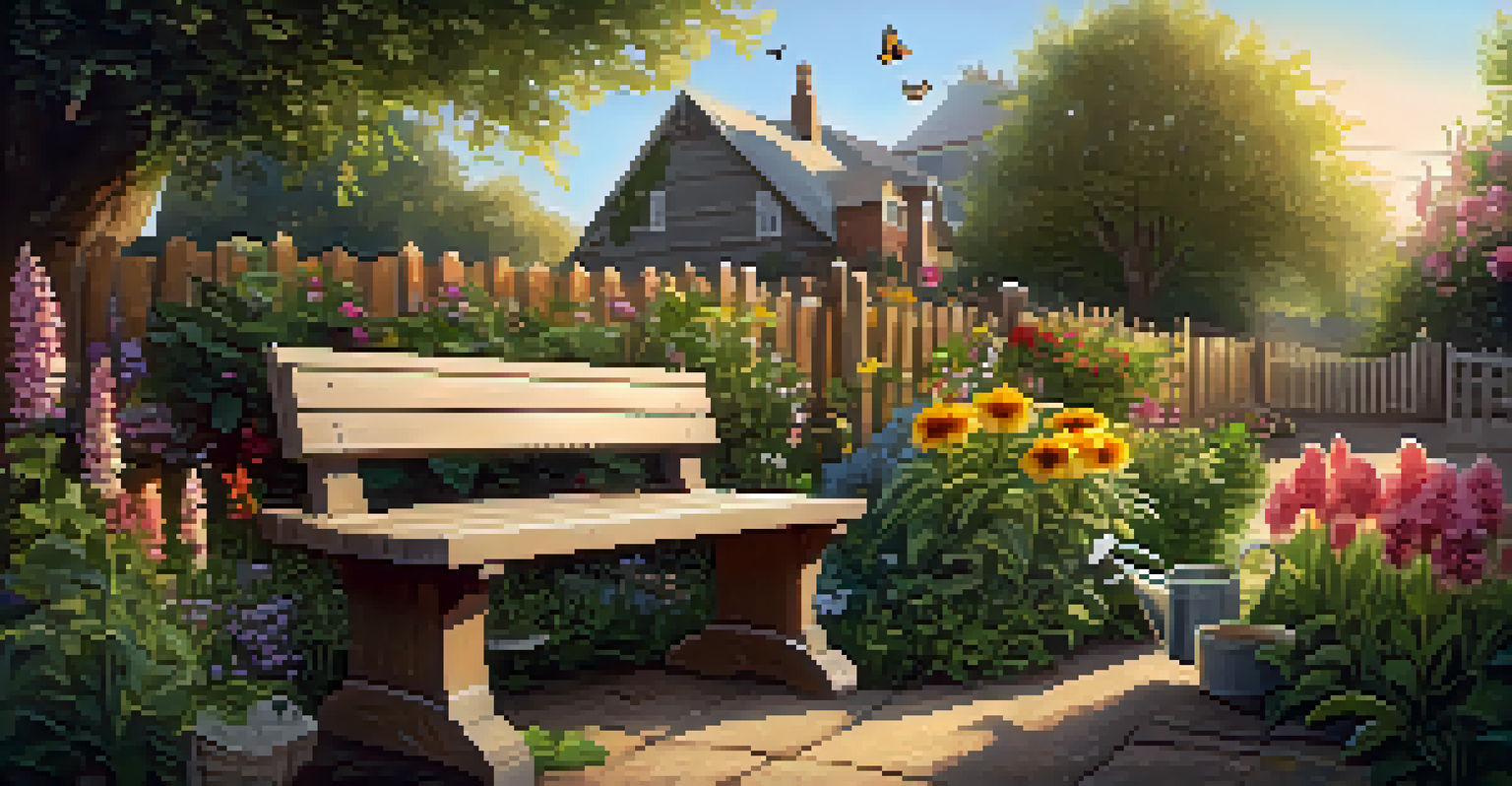Community Gardening: A Natural Way to Reduce Stress Levels

Understanding Stress and Its Effects on Our Lives
Stress is a common experience, often stemming from work, relationships, and daily responsibilities. It can manifest physically and emotionally, impacting our mood and overall health. When stress becomes overwhelming, it can lead to anxiety, fatigue, and a host of other issues that affect our quality of life.
To plant a garden is to believe in tomorrow.
Many people seek remedies to relieve stress, ranging from exercise to meditation. However, one of the most effective and enjoyable methods is often overlooked: community gardening. This engaging activity not only offers a way to connect with nature but also fosters social connections that can alleviate feelings of isolation.
By understanding stress and its effects, we can better appreciate the benefits of community gardening. It's about cultivating not just plants, but also a supportive environment that nurtures our mental well-being.
The Benefits of Connecting with Nature
There's something inherently soothing about being outdoors. Studies have shown that spending time in nature can lower cortisol levels, the hormone associated with stress. The simple act of tending to plants and enjoying fresh air can transform our mood and provide a sense of calm.

Community gardens bring this experience to life, allowing people to engage with nature in a shared space. Whether it's planting seeds or enjoying the fruits of your labor, each activity provides a grounding experience that can help clear the mind and soothe the spirit.
Nature has a remarkable ability to heal and rejuvenate. When we immerse ourselves in a community garden, we can harness this natural energy, leading to reduced stress and enhanced emotional resilience.
Building Community Through Gardening
Community gardening is not just about growing food; it's about fostering relationships. When individuals come together to cultivate a garden, they create a sense of belonging and shared purpose. This connection can be a powerful antidote to stress, as it combats loneliness and isolation.
Gardening adds years to your life and life to your years.
Working alongside others allows for the exchange of ideas, experiences, and laughter. These social interactions can lighten the weight of stress, providing a supportive network where individuals can share their challenges and triumphs. It's a reminder that we are never alone in our struggles.
Moreover, community gardens often attract diverse groups of people, enriching our understanding of different cultures and backgrounds. This diversity can enhance our social skills and empathy, further contributing to a positive mental outlook.
The Therapeutic Effects of Gardening Activities
Gardening involves physical activity, which is a well-known stress reliever. Digging, planting, and weeding not only provide a workout but also release endorphins, the body's natural mood lifters. This holistic approach to well-being makes gardening an excellent choice for stress management.
The rhythmic motions of gardening can be meditative, allowing individuals to focus on the present moment. This mindfulness aspect helps us step away from our worries and immerse ourselves in the task at hand, creating a sense of peace and clarity.
Whether you're pruning plants or harvesting vegetables, each action provides a sense of accomplishment. This feeling of achievement can counteract the feelings of helplessness that often accompany stress, empowering individuals to take control of their lives.
Learning and Growth in Community Gardens
Community gardens are often educational spaces where individuals can learn about sustainable practices and healthy eating. This knowledge can empower participants to make better choices regarding their diet and lifestyle, contributing to overall well-being.
As gardeners learn about plant care, they also gain insights into patience and resilience. Just like plants, we need nurturing and time to grow, and these lessons can be applied to our personal lives to help manage stress.
Moreover, sharing knowledge within the community fosters collaboration and teamwork. This shared learning experience not only builds skills but also creates lasting friendships that can help mitigate feelings of stress and anxiety.
Creating a Routine: Gardening as a Stress Relief Tool
Establishing a gardening routine can provide structure to our lives, which is particularly beneficial during stressful times. By committing to regular gardening activities, we create a sense of normalcy and predictability that can help ground us in uncertain moments.
This routine also encourages a break from the hustle and bustle of daily life. Spending time in the garden can be a welcomed escape, allowing us to recharge and refocus our energy on self-care.
Incorporating gardening into our weekly schedules can transform it into a cherished ritual. Over time, this practice can become a powerful tool for reducing stress, offering a reliable outlet for relaxation and joy.
Getting Involved: How to Start Your Own Community Garden
If you're inspired to experience the benefits of community gardening, getting started is easier than you might think. Begin by researching local community gardens in your area or consider starting one with friends and neighbors. Reach out to local gardening organizations for support and resources.
When starting a community garden, it's essential to involve everyone in the planning process. Discuss what plants everyone would like to grow, and assign tasks based on individual interests and skills. This collaborative spirit not only builds excitement but also fosters ownership and commitment to the project.

Remember, the goal is to create a nurturing environment for both plants and people. By working together, you can cultivate a space that not only thrives but also serves as a sanctuary for reducing stress and enhancing well-being.